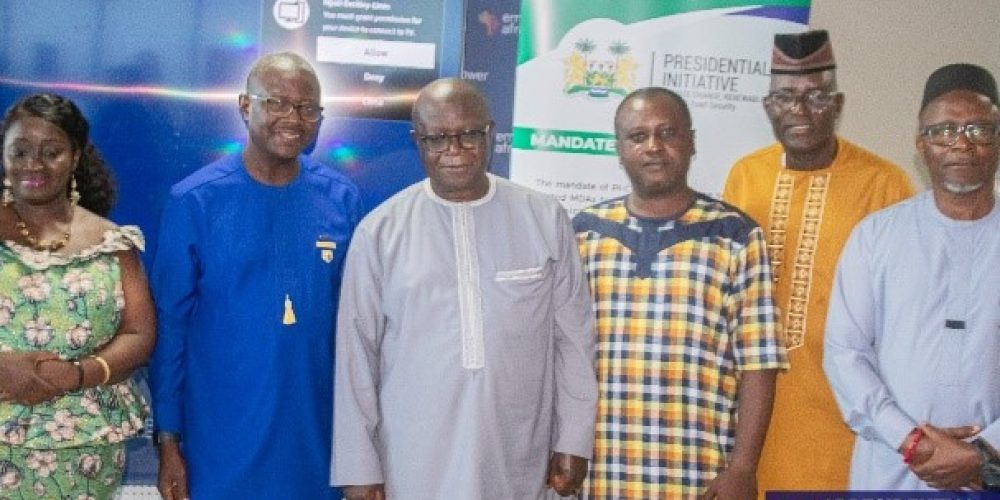Chairman of the Presidential Initiative on Climate Change, Renewable Energy and Food Security (PI-CREF), Dr. Kandeh Kolleh Yumkella, has told diplomats, energy experts and ministers of government that President Julius Maada Bio’s long-term plan was to have 1,000 megawatts electricity supply for Sierra Leone.
He was talking during a validation workshop of the PI-CREF Strategic Plan 2024-2030, where he also noted that there was a great potential in Sierra Leone to have more renewable energy platforms which would eventually lead to the reduction of electricity tariffs.
“At the Bumbuna Hydro Dam, we are planning to increase electricity generation to 200 megawatts from the 50 megawatts that we are currently getting. Our aim is to centralize energy solutions in order to promote economic and social development. Energy is important for agriculture because it would enhance productivity,” he told his audience.
He stated that there had been an energy crisis with every government since independence, stating that energy solution is not a quick fix but a strategic and bold intervention that would last for 20 or more years uninterrupted.
“The upgrade of the Bumbuna Hydro Dam is a priority. But there is a huge potential to increase the electricity generation at Dodo Hydro Dam in Kenema from 6 megawatts to 20 megawatts,” he stated.
He disclosed that plans were underway to develop the Cleaning Cooking Strategy and Plan, adding that PI-CREF would have to find ways of raising funds to support the sector ministry in that regard.
Deputy Minister of Energy, Dr. Eldred Taylor, said at his ministry they have four main policy goals which include universal access, financial sustainability, reforms and diversification of energy means, noting that based on the strategic plan that PI-CREF has developed, they have seen a great alignment in respect of the ministry’s policy goals.
“We have been working with PI-CREF so as to foster our policy goals. In the PI-CREF strategic plan, we have seen that most of the barriers with most of our projects, would be removed. Also, there are areas in the plan which aim to leverage financing for some of our projects particularly in renewables,” he said.
Deputy Minister of the Ministry of Environment and Climate Change, Mima Yema Mimi Sobba-Stephens, said her ministry saw PI-CREF as a strategic partner in development, noting that her ministry would be collaborating with PI-CREF to prepare an intervention plan on clean cooking.
“We also need to collaborate in the implementation of environment programs. At the moment, our country needs to develop climate legislation so as to mitigate the impact of climate change,” she told her audience.
German Embassy’s Head of Cooperation, Johannes Behreus, stated that Germany has been supporting Sierra Leone since 1960s in the areas of energy, health, infrastructure, among others.
“We have been supporting the food security initiative by boosting food production in rural communities. We have also been supporting in the area of feeder road rehabilitation which aim at connecting rural areas,” he noted.
Pierre Trellu of the European Union (EU) Delegation to Sierra Leone, said he was convinced that the partnership with PI-CREF was a good way of enhancing development, adding that the collaboration would lead to attracting more investors to Sierra Leone.
Senior Permanent Secretary, Ministry of Agriculture and Food Security, Andrew L.P. Sorie, energy is an enabler for agricultural productivity, adding that that was why his ministry was happy to collaborate with PI-CREF.
“The ‘Feed Salone’ initiative goes beyond food production. It is about job creation, economic boost, and linkages of communities through good road network that would make agricultural products reach the market at all times,” he said.
Copyright –Published in print in Expo Times Newspaper on Friday, June 3rd , 2024 (ExpoTimes News – Expo Media Group (expomediasl.com)





